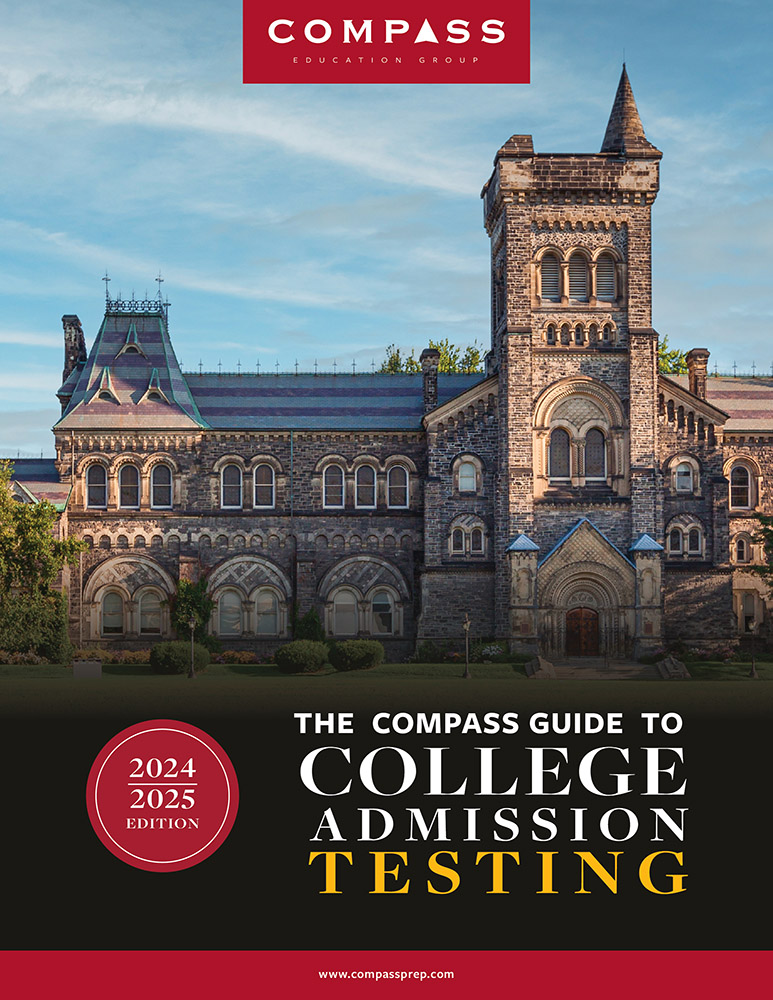 Compass directors have countless conversations with families about whether or not their students should retake the ACT or SAT exam. Even the ones who are thrilled with their initial results may succumb to the pressure to try for one more composite point on the ACT or another 20 to 50 points on the SAT. Typically the answer to “Should I try it again?” is not a simple one. As Managing Director in Compass’ Southern California office, I thought it would be helpful to share our approach.
Compass directors have countless conversations with families about whether or not their students should retake the ACT or SAT exam. Even the ones who are thrilled with their initial results may succumb to the pressure to try for one more composite point on the ACT or another 20 to 50 points on the SAT. Typically the answer to “Should I try it again?” is not a simple one. As Managing Director in Compass’ Southern California office, I thought it would be helpful to share our approach.
What Is “History of Progress”?
First, it’s important for a student to look at her full history of progress. Compass students who engage in regular, meaningful prep often see increases in the range of 3 to 5 ACT composite points or 100 to 200 points on the SAT. Whether a student has already significantly increased her individual baseline, we will advise her to tread carefully. In short, while we don’t want to impose limits on any student, the reality is that most have a range of improvement that is to be expected; more time spent on test prep doesn’t always yield more points.
When a student is determined to test again, the next logical step is for her to sit for a full-length, timed practice test to see where things stand. A current set of results will let the student know whether she’s in the same scoring range as her previous test or whether things have slipped a bit. This concrete
information—especially when gleaned from previously administered exams such as the ones Compass offers on weekends—will indicate how much refresher work and practice will be necessary for the next test date.
Finally, we encourage a dialogue that addresses a few key questions:
- How do existing scores stack up against the student’s list of schools?
- Will one more attempt at the ACT or SAT compete with other academic and extracurricular pursuits?
To address the first question, students should research admission statistics using the Compass Guide and consult with a counselor to get solid advice on how necessary another attempt may be.
As far as finding a balance between school and test prep, it’s important to remember: just as a runner conditions for the next big race, students who target an additional test must make time for regular practice. In other words, if you’re going to do it, you should do it right.
To speak to me or another knowledgeable Compass director about improving ACT or SAT scores, visit our Contact page.


My daughter did not do well on the ACT. She got a 24 composite score both times and 23 on the essay the first time and a 12,on the one in September. She’s been getting tutoring and will retract the ACT IN December. My question is should she retake the test with the essay again. Thank you in advance.
Hi, Robin. Yes, your daughter should definitely take the ACT with the essay again. Colleges will often “superscore,” which means they prioritize the highest subscores across testing administrations. I hope that helps!
And to add a quick comment to Laryssa’s reply- even for schools that superscore you don’t want to risk having her take the December ACT WITHOUT essay in the event that the admissions department rules that the ACT with no essay doesn’t technically fulfill their requirement. I have worked with students in the past who took the ACT for a second or third time but neglected to sit for another essay and even though the multiple choice scores moved up those results were not considered because they were from a test without an essay.
Is an SAT Total Score of 1080 good?
Rosa,
Scores are “good” or “bad” only in relation to what college a student is targeting. Your scores are close to the national average, so they certainly provide you with many opportunities. Selective colleges usually require higher scores, but many factors come into play.
Kim,
You’ll get a number of different answers on this front. First, let me throw some numbers at you. There were 2,090,000 test takers in the class of 2016. 18,746 got a 34 composite. 10,993 got a 35 composite. 2,235 a 36 composite. So jumping from a 34 from a 35 moves a student from being among the highest 32,000 scorers to among the highest 13,000. The harder question is whether or not this matters. It can. Many of those top students are applying to the same colleges and look to get an edge wherever they can. The decision to retest is not that simple, though, because taking the test again does not mean that a student will get a 35, of course. It becomes harder and harder to achieve gains, and score drops become more likely. If your son took the test without any preparation, he may feel that he still has room to improve. If this test comes at the end of an intensive period of prep, then he may want to stand pat. He may be applying to colleges where a 34 already puts him at the top of the testing heap. He may be burnt out on testing, or he may be itching to improve. Retesting — especially from such a lofty score — should always be a decision that weighs many factors. There is not one right decision for all students.